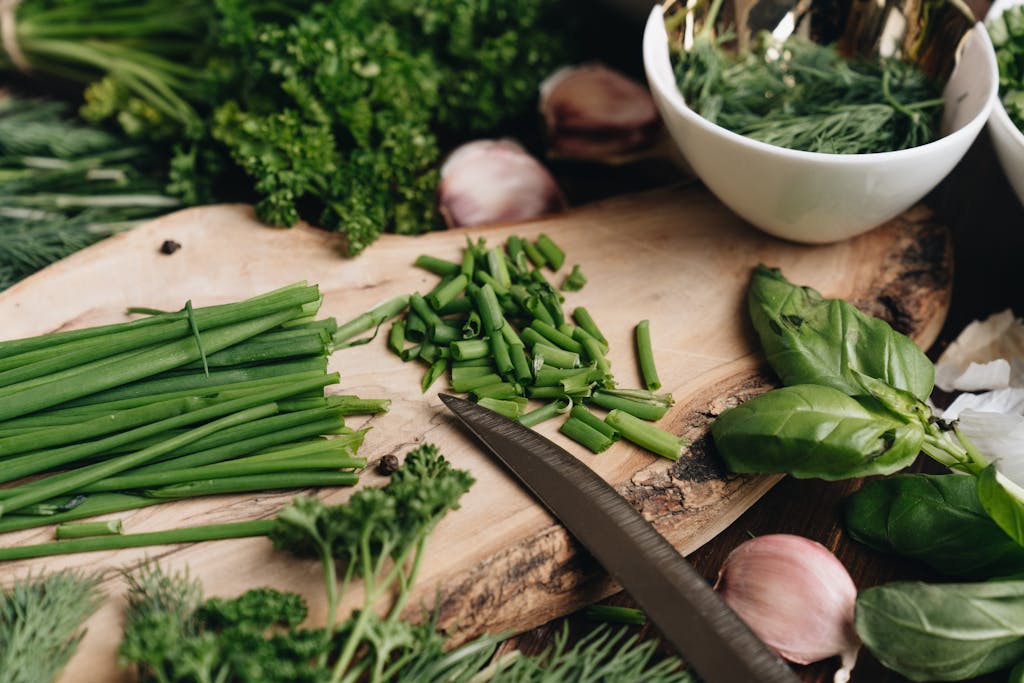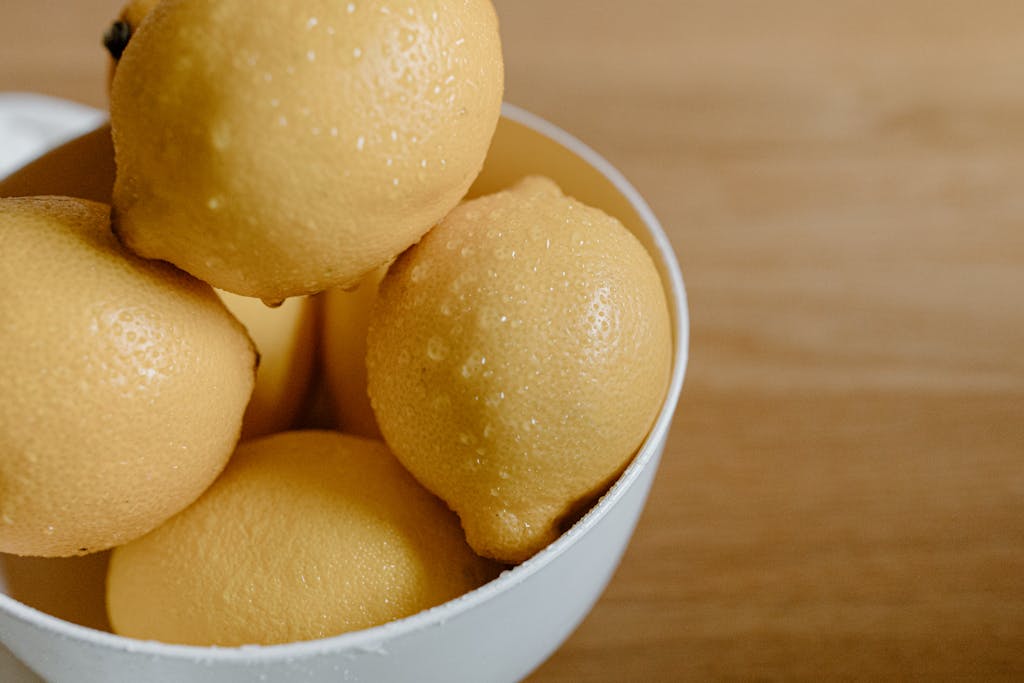Feng Shui Kitchen Guide for Balanced Living

Creating a balanced and harmonious kitchen with Feng Shui can greatly enhance the energy of your home. We have previously talked about a Feng Shui Bathroom and a Feng Shui Livingroom. Today we are looking at the kitchen.
Your kitchen is the heart of your home, and according to Feng Shui principles, it represents health, wealth, and abundance. By carefully considering the design, layout, colors, and elements in your kitchen, you can cultivate positive energy that supports your well-being. In this comprehensive Feng Shui kitchen guide, we’ll explore how you can balance the energy of your kitchen for better living.
What is Feng Shui?
Before we dive into the specifics of a Feng Shui kitchen, let’s quickly understand what Feng Shui is. Feng Shui is an ancient Chinese practice that focuses on harmonizing individuals with their surrounding environment. It’s all about creating balance and promoting the flow of positive energy, or chi. When it comes to applying Feng Shui principles to your kitchen, the aim is to create a space that encourages health, prosperity, and positive relationships.
Why is the Kitchen Important in Feng Shui?
In Feng Shui, the kitchen is considered one of the most important areas of your home. It symbolizes nourishment, vitality, and abundance. The way you design and organize your kitchen can influence your family’s health and prosperity. A poorly designed kitchen can lead to stagnant energy, which may affect the well-being of the entire household. With a few thoughtful changes, you can optimize the flow of energy in your kitchen to create a space that supports balanced living.

How Do I Feng Shui My Kitchen?
If you’re asking, “How do I Feng Shui my kitchen?”, you’re in the right place. Applying Feng Shui to your kitchen involves a few key steps, including selecting the right colors, organizing the layout, and incorporating specific elements. Here’s a step-by-step guide to help you get started:
1. Declutter and Cleanse the Space
The first step in creating a Feng Shui balanced kitchen is to clear out clutter. A cluttered kitchen can block the flow of positive energy and create stagnant chi. Make sure your countertops are clear, and only keep items that you use frequently. A clean and organized kitchen not only looks appealing but also supports the free flow of energy.
Tip: Make decluttering a regular practice in your kitchen. Set aside time each week to tidy up and ensure everything has its place.
2. Choose Feng Shui Kitchen Colors
Colors play a vital role in Feng Shui (Homes & Gardens), as each color corresponds to different elements and energies. When selecting kitchen colors, it’s important to choose those that support nourishment and vitality. Some popular color choices for a Feng Shui inspired kitchen include:
- Green and brown: These colors represent the Wood element and are associated with growth and vitality.
- Yellow: A warm, welcoming color that represents the Earth element, which is great for grounding energy.
- White and beige: These neutral tones are linked to the Metal element, symbolizing clarity and precision.
- Red and orange: These bold colors represent the Fire element, but use them sparingly, as too much fire can create imbalance.
What is the best Feng Shui color for a kitchen? It ultimately depends on the energy you want to cultivate. Earth tones, such as beige and yellow, are generally considered the best options for a harmonious kitchen.
3. Optimize Your Feng Shui Kitchen Layout
The layout of your kitchen is critical in Feng Shui, as it directly affects the flow of chi throughout the space. Here are some tips to ensure your kitchen layout promotes good energy:
- Position of the stove: The stove is a symbol of wealth and health in Feng Shui. Ideally, the stove should be placed in a position where the cook can see the entrance to the kitchen without having their back to it. If this isn’t possible, a mirror or reflective surface can be used to create a similar effect.
- Sink and stove separation: In Feng Shui, water and fire elements should be balanced. The sink (water element) and the stove (fire element) should not be placed directly opposite or next to each other, as this can create conflict. A good solution is to place a wooden item between them to harmonize these opposing elements.

Feng Shui Elements in the Kitchen
Each area of the home in Feng Shui is associated with one of the five elements: Wood, Fire, Earth, Metal, and Water. The kitchen is typically associated with the Fire element, but it’s essential to balance all five elements to create harmony. Here’s how to incorporate Feng Shui elements:
- Wood: Add wooden cutting boards, utensils, or fresh plants to represent the Wood element. This brings vitality and growth into your kitchen.
- Fire: The stove is the primary Fire element in your kitchen. You can also incorporate candles or lighting with a warm glow to enhance this element.
- Earth: Ceramic dishes, stone countertops, or earthenware pots help ground the space with the Earth element.
- Metal: Stainless steel appliances and metal fixtures represent the Metal element, which brings clarity and focus.
- Water: Include a water source such as a sink or even a small water feature. Just be sure not to overpower the Fire element with too much Water.
Balancing these elements will help ensure that your kitchen promotes a healthy and supportive environment.
Feng Shui Wall art and Décor
Art and décor can significantly enhance the energy of your kitchen, but it’s important to be mindful of what you display. Kitchen wall art should reflect positivity, abundance, and nourishment. Here are some ideas for Feng Shui-friendly décor:
- Nature-inspired art: Paintings or photographs of nature scenes, such as lush forests or abundant gardens, are great for promoting vitality.
- Fruit and food imagery: Images of fresh fruits, vegetables, or food can enhance the sense of abundance in your kitchen.
- Avoid cluttered or chaotic art: Steer clear of art that feels overly busy or chaotic, as this can create disorganized energy in the space.
Tip: Be selective about the artwork you choose. Every item in your kitchen should reflect the energy you want to cultivate.

What Should I Keep in My Kitchen for Good Luck?
Wondering what you should keep in your kitchen for good luck? In Feng Shui, certain items are believed to attract positive energy and good fortune. Here are a few lucky items to consider:
- A bowl of fresh fruit: Fresh fruits, particularly oranges and pomegranates, symbolize abundance and good health.
- Plants and herbs: Fresh, green plants bring life and vitality into the kitchen. Consider keeping herbs like basil or mint on your windowsill for added energy.
- A clean stove: In Feng Shui, a clean and well-maintained stove is considered a symbol of prosperity. Make sure all burners are working properly and keep the stove free from grease and grime.
Kitchen Feng Shui Do’s and Don’ts
When applying Feng Shui principles to your kitchen, it’s important to follow some basic guidelines to ensure a balanced and positive flow of energy. Here are some key Feng Shui do’s and don’ts:
Do:
- Keep your kitchen clean and clutter-free.
- Balance the five Feng Shui elements (Wood, Fire, Earth, Metal, Water).
- Use warm, natural colors to promote harmony.
- Ensure your stove is clean and in good working order.
- Incorporate fresh plants or herbs to bring life into the space.
Don’t:
- Place the stove and sink directly opposite each other (Fire vs. Water).
- Use overly bright or harsh colors like neon or intense red.
- Allow clutter to accumulate, especially on countertops.
- Overload the kitchen with too much décor—less is more in Feng Shui.

Feng Shui Tips for Balanced Kitchen Living
Creating a kitchen inspired by Feng Shui doesn’t require a total renovation. Small changes can have a big impact on the energy of your space. Here are some additional Feng Shui tips to help you cultivate a balanced and harmonious kitchen:
- Lighting: Make sure your kitchen is well-lit, as light represents the Fire element and promotes energy. Avoid dark corners and consider adding soft lighting to create warmth.
- Ventilation: Fresh air is crucial in Feng Shui. Ensure your kitchen has proper ventilation to keep the air circulating and the energy fresh.
- Mirrors: If your kitchen feels cramped or dark, use mirrors strategically to reflect light and create the illusion of more space.
- Cooking habits: Cooking meals at home promotes positive energy in your kitchen. The act of preparing and cooking food nourishes both the body and the space itself.
Conclusion: Feng Shui for Balanced Living
Incorporating Feng Shui into your kitchen is a powerful way to enhance the energy of your home and support your well-being. By paying attention to the colors, layout, elements, and décor, you can create a kitchen that feels harmonious and inviting. Whether you’re new to Feng Shui or a seasoned practitioner, these tips will help you transform your kitchen into a space that promotes balanced living. Start small, and gradually make changes to align your kitchen with the principles of Feng Shui, and soon you’ll feel the positive effects in your home and life.
Now that you have a complete Feng Shui guide for your kitchen, it’s time to take action and start creating the balanced and harmonious kitchen of your dreams!






